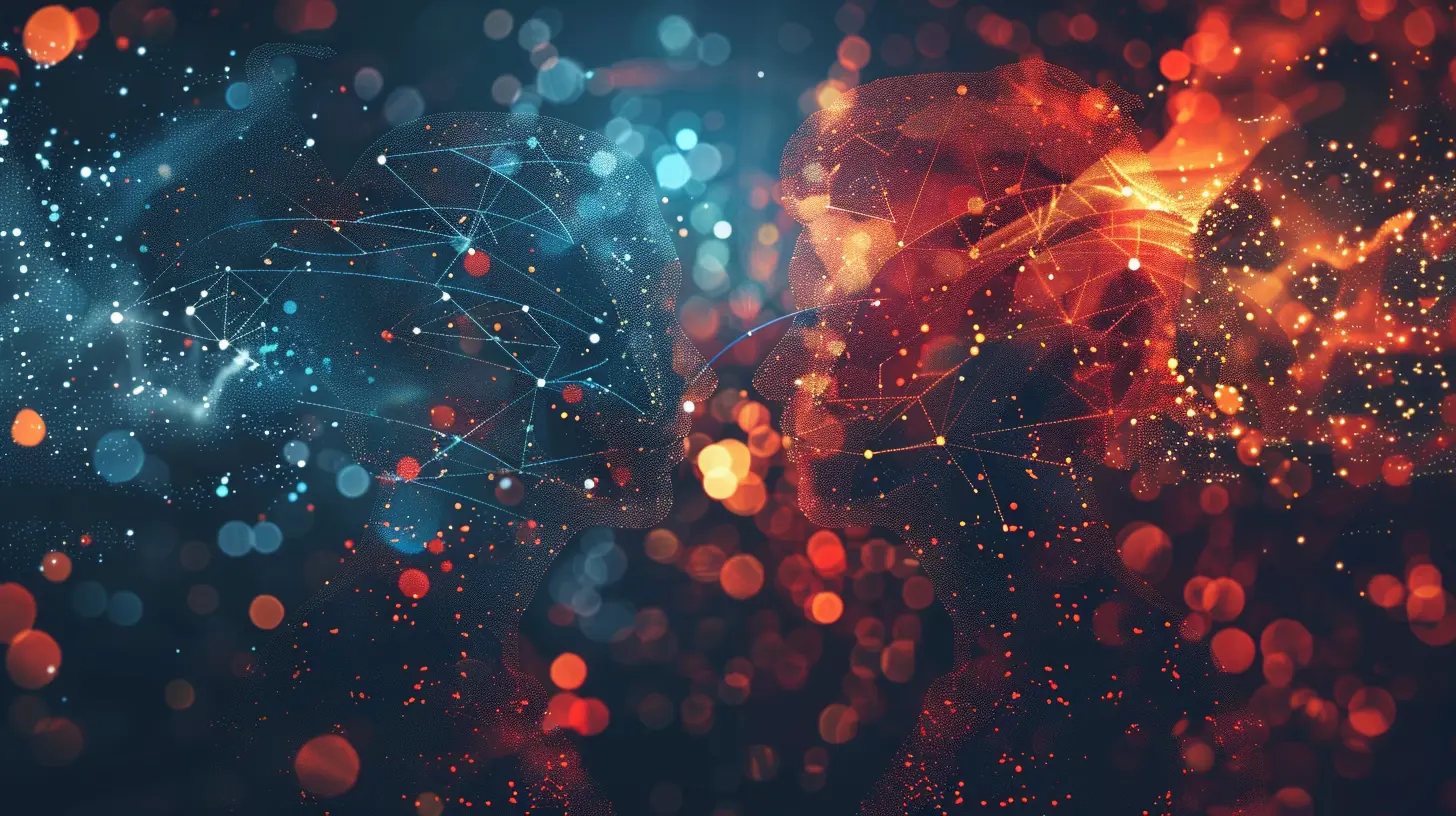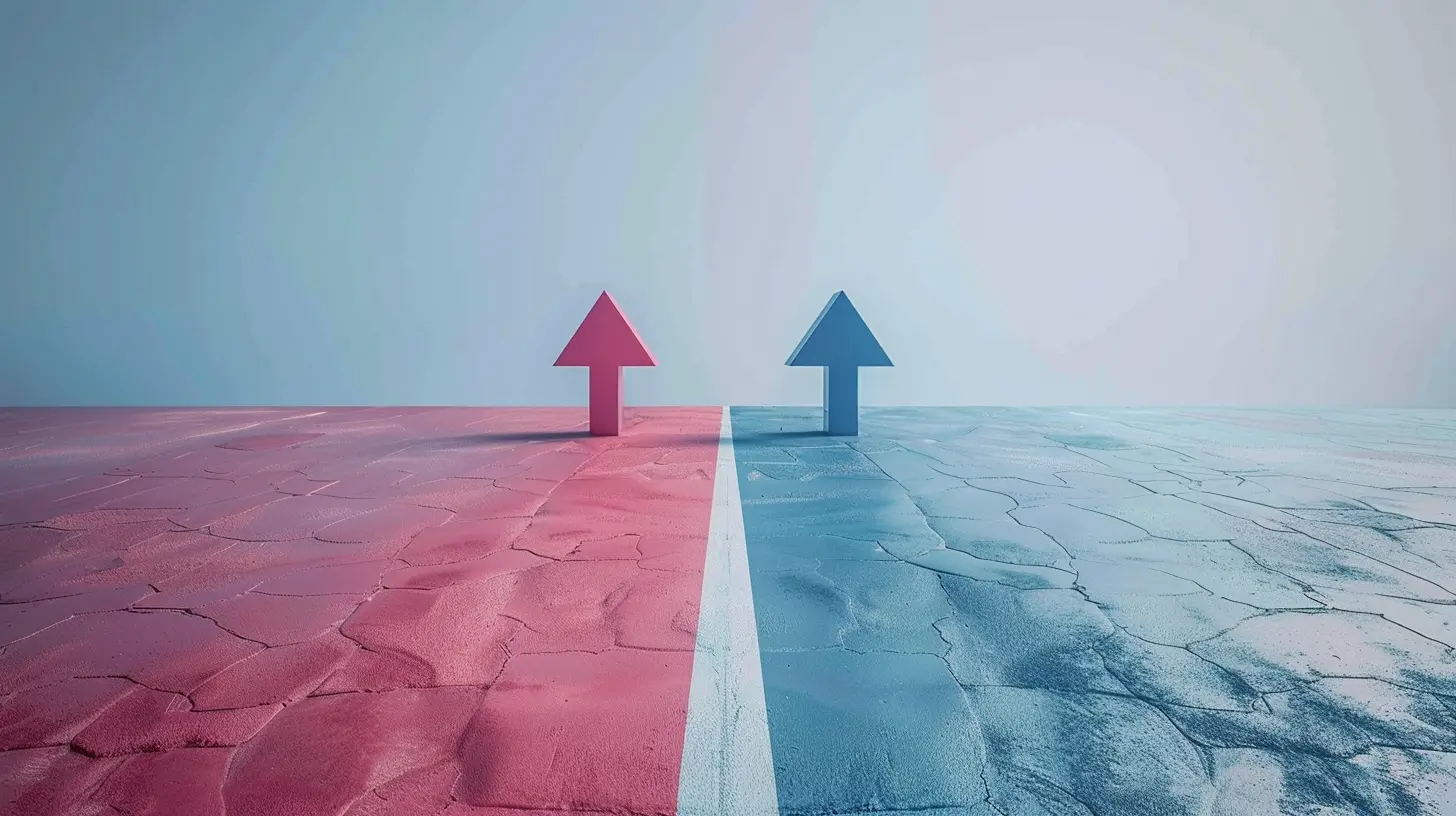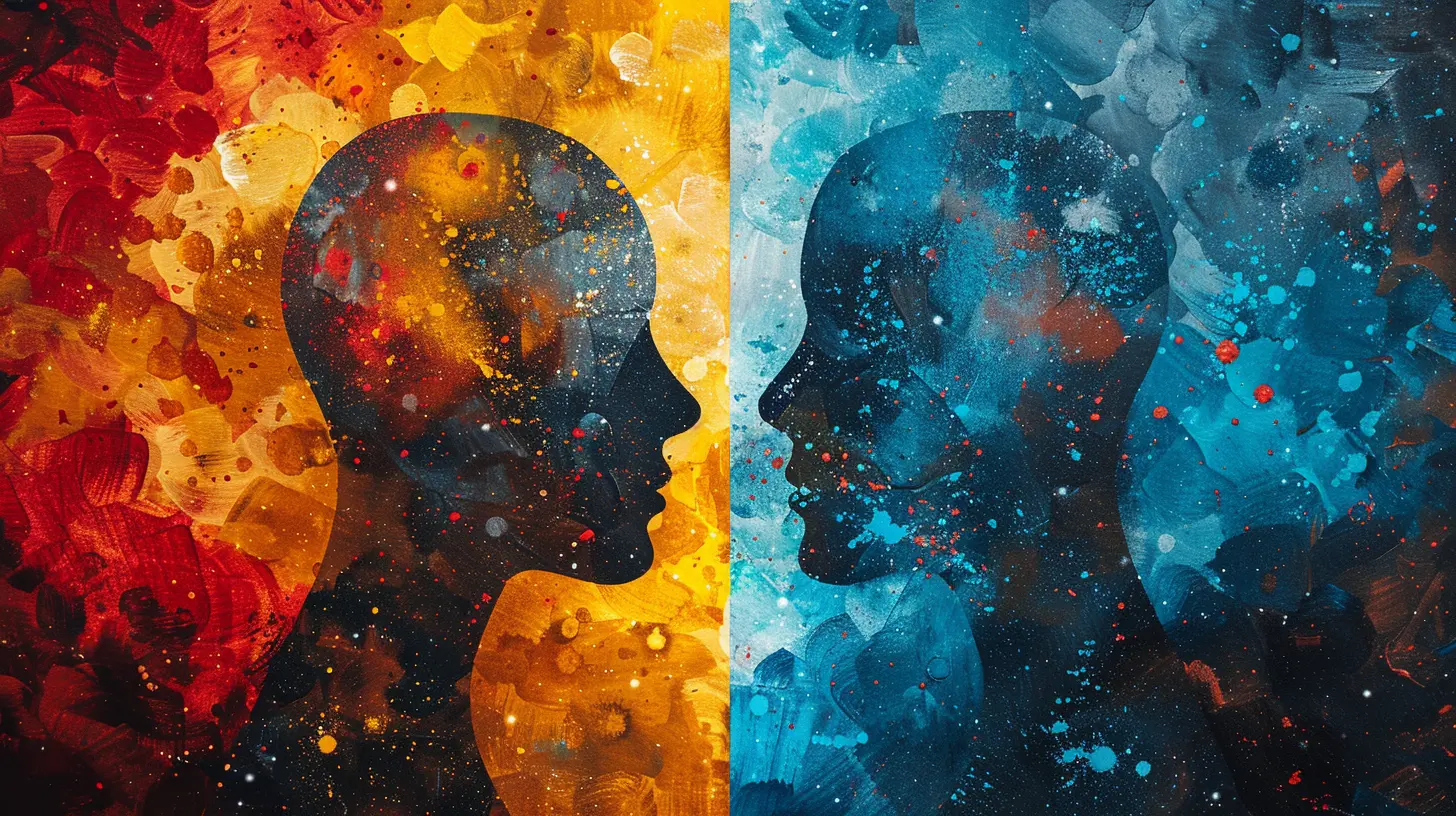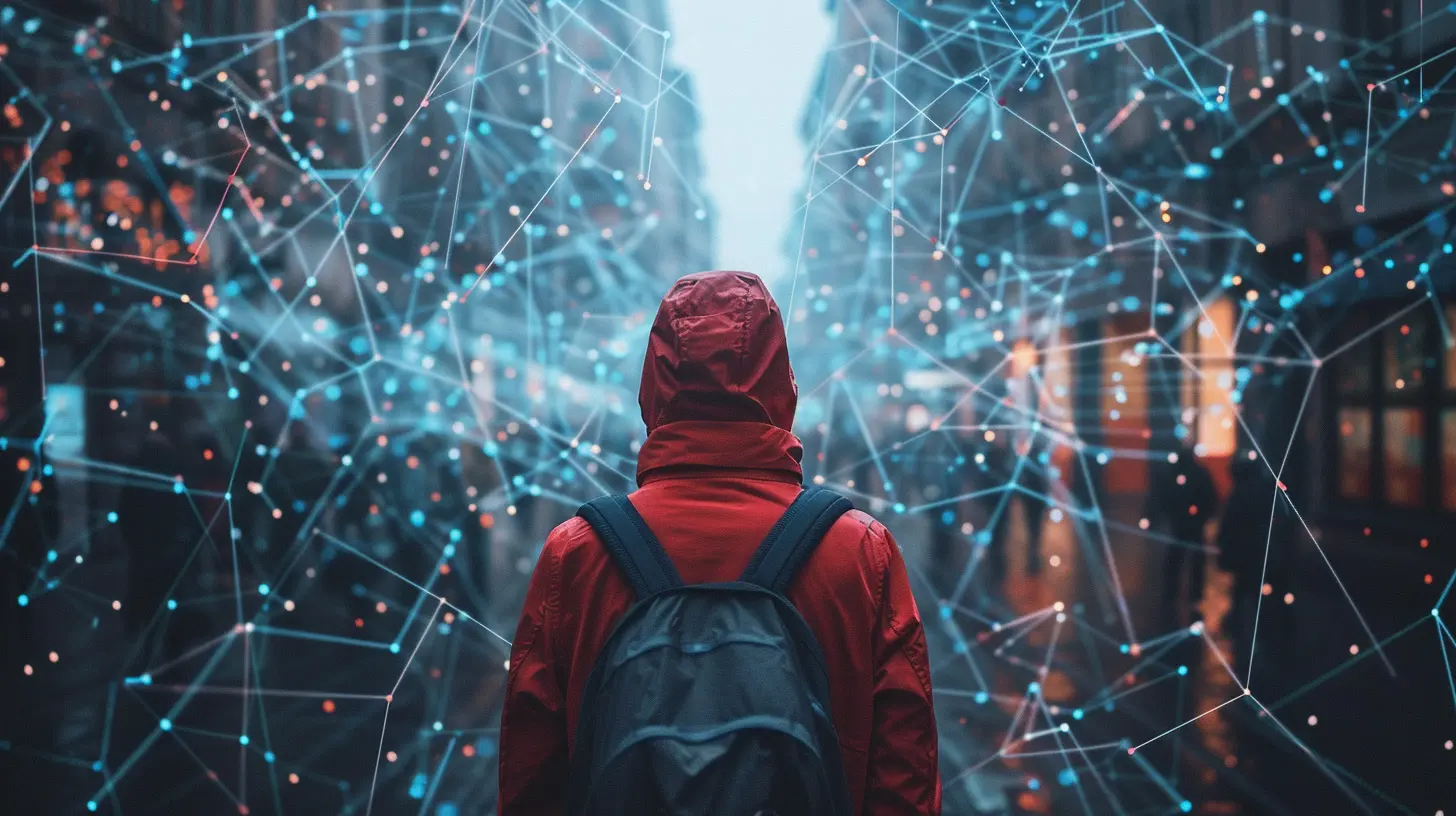How Social Media Affects Our Decision-Making Process
22 July 2025
Social media is everywhere, right? Think about it—how often do you scroll through Instagram, Facebook, or Twitter in a day? Whether you're looking at memes, catching up with friends, or diving deep into news articles, social media is a massive part of our daily lives. But have you ever stopped to wonder how it influences the decisions you make? It’s not just about what we click on or who we follow. Social media can subtly (or not-so-subtly) shape our thoughts, behaviors, and choices—sometimes without us even realizing it.
In this article, we’re going to dig deep into how social media affects our decision-making process. Spoiler alert: it’s more complicated than you think!

The Rise of Social Media: A Decision-Making Playground
Social media platforms have evolved from simple communication tools to complex ecosystems where we gather information, interact with others, and—most importantly—make decisions. Whether you're deciding what to wear, what to eat, or even who to vote for, there’s a good chance that social media is playing a role in the process.But why exactly does social media have such a powerful impact on our decisions? Let’s break it down.

1. The Influence of Social Proof
Ever heard of "social proof"? It’s a psychological phenomenon where people copy the actions of others in an attempt to reflect correct behavior for a given situation. Social media is basically a breeding ground for social proof. When we see a post with thousands of likes, comments, or shares, we tend to assume that the information or product being promoted is credible or desirable.For instance, if you’re scrolling through Instagram and see your favorite influencer raving about a new skincare product, you're more likely to believe it works—even if you’ve never tried it yourself. This is social proof in action. The more people that endorse something, the more likely we are to consider it during our decision-making process.
2. The Fear of Missing Out (FOMO)
Let’s be honest—most of us have experienced FOMO (Fear of Missing Out) at some point. It’s that nagging feeling that everyone else is having more fun, making better choices, or living their best life while you’re missing out.Social media amplifies FOMO like nothing else. Every time you scroll through your feed and see friends attending events, trying new restaurants, or buying the latest tech gadgets, you might feel pressured to make similar decisions. This can lead you to make impulse decisions—like buying concert tickets or booking a last-minute trip—just to feel like you’re part of the action.
But here’s the thing: these decisions might not align with your actual needs or desires. They’re often driven by the fear of being left out, rather than a genuine interest.
3. Echo Chambers and Confirmation Bias
Another way social media affects our decisions is through what’s called an "echo chamber." Essentially, social media algorithms tend to show us content that aligns with our existing beliefs and opinions. Over time, this creates an environment where we’re constantly exposed to information that reinforces what we already think.This leads to "confirmation bias"—the tendency to seek out or interpret information in a way that confirms our preexisting beliefs.
Say you’re trying to decide whether to adopt a vegan diet. If your social media feed is filled with posts from vegan influencers, health articles promoting plant-based diets, and friends sharing their own vegan journeys, you might be more inclined to go vegan—even if you haven’t fully researched the pros and cons. Social media can make it difficult to see alternative viewpoints, which can influence the decisions we make without us even realizing it.
4. The Power of Influencers
We can’t talk about social media without mentioning influencers. These are individuals who have built significant followings around specific niches—whether it’s fashion, fitness, travel, or, really, anything else. Influencers often promote products, services, or ideas to their audience, and their recommendations can carry a lot of weight.Why? Because people tend to trust influencers. In many cases, they feel like friends rather than advertisers. When an influencer we admire endorses something, we’re more likely to take it seriously and incorporate their suggestions into our decision-making process.
But it’s important to remember that influencers are often paid to promote products. The decisions you make based on their endorsements might not always be in your best interest—they’re in the best interest of the brands paying them!
5. The Role of Emotions in Decision-Making
We like to think we make decisions based on logic and reason, but the truth is that emotions play a huge role. Social media is a highly emotional environment, full of content designed to evoke feelings—whether it’s happiness, outrage, or empathy.Think about it: How many times have you made a decision based on an emotional reaction to something you saw on social media? Maybe you donated to a charity after seeing a heart-wrenching video, or perhaps you decided to boycott a brand after reading a viral post about unethical practices.
Emotional content tends to spread quickly on social media, and when emotions are high, rational thinking often takes a backseat. This can lead to decisions that are more impulsive and less carefully considered.
6. The Filter Bubble Effect
The "filter bubble" is another key concept that explains how social media can shape our decision-making processes. Social media platforms use algorithms to filter the content we see based on our past behavior—what we like, share, comment on, and engage with. Over time, this creates a bubble of content that’s tailored specifically to us.While this might sound convenient, it’s actually limiting. The filter bubble can prevent you from seeing diverse viewpoints or alternative options, which can skew your decision-making process. If you're only exposed to one side of an issue, you're more likely to make decisions that align with that perspective, even if other options exist.
For example, if you're researching a new phone to buy and your social media feed is filled with ads and posts about a specific brand, you might start to believe it's the best choice—without ever considering other brands or models.
7. Peer Pressure and Groupthink
Social media is inherently social, which means it’s often influenced by peer pressure and groupthink. When you see a large group of people—especially your friends or people you admire—supporting a particular idea or product, it can be difficult to go against the grain.This phenomenon is called "groupthink," where the desire for harmony or conformity in a group results in an irrational or dysfunctional decision-making outcome. If everyone in your social circle is raving about the latest iPhone, for example, you might feel pressured to buy it, even if you don’t actually need a new phone.
Groupthink can lead to poor decision-making because it discourages critical thinking and individual opinions. Instead of making decisions based on your personal preferences or needs, you might make choices just to fit in with the group.

How to Avoid Letting Social Media Control Your Decisions
So, now that we know how social media can sneakily influence our decisions, what can we do about it? Here are a few tips to help you take back control of your decision-making process:1. Be Mindful of Social Proof
Before jumping on a bandwagon just because everyone else is, take a step back. Ask yourself—does this decision align with my personal values, needs, and desires? Just because something is popular doesn’t necessarily mean it’s the right choice for you.2. Combat FOMO with Gratitude
Instead of letting FOMO drive your decisions, practice gratitude for the things you already have. It’s easy to get caught up in what others are doing, but focusing on your own life and what makes you happy can help you make decisions that are more authentic.3. Diversify Your Feed
Break out of your echo chamber by following a variety of accounts and viewpoints. This can help you see different perspectives and make more informed decisions. Don’t be afraid to follow people who challenge your beliefs—it’s a great way to grow!4. Fact-Check Influencers
Remember that influencers are often paid to promote products. Before making a decision based on their recommendations, do your own research. Look for unbiased reviews and consider whether the product or service is something you genuinely need.5. Take a Break
Sometimes, the best way to clear your mind and make better decisions is to take a break from social media altogether. When you’re constantly bombarded with information, it can be hard to think clearly. A digital detox can help you reconnect with your own thoughts and make decisions based on what’s truly important to you.
Conclusion
Social media can have a profound impact on our decision-making processes, often in ways we don’t even realize. From social proof and FOMO to emotional manipulation and filter bubbles, there are countless factors at play. But by being mindful of these influences and taking steps to counteract them, we can make more informed, conscious decisions that align with our true selves.After all, at the end of the day, the best decisions are the ones that come from within—not from your Instagram feed.
all images in this post were generated using AI tools
Category:
Decision MakingAuthor:

Matilda Whitley
Discussion
rate this article
1 comments
Rocco McDonough
What a delightful read! This article brilliantly highlights the intricate ways social media shapes our choices. It's fascinating to consider how our online interactions influence our decisions, big and small. A lovely reminder of the power of connection—both virtual and real! Keep up the great work!
August 7, 2025 at 4:05 PM

Matilda Whitley
Thank you so much for your kind words! I'm glad you enjoyed it and found the topic insightful. Your support means a lot!


